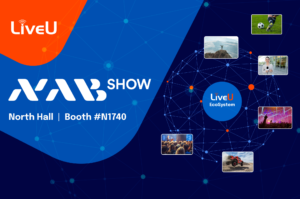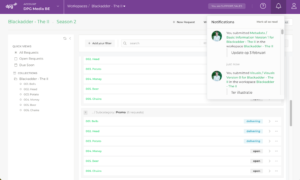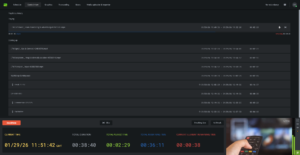Veritone – Maximizing revenue generation from your sports content
How using AI to manage and license your content can lead to even bigger wins

Gary Warech, Head of Sports & Entertainment at Veritone, Inc.
In the realm of sports, AI technology is helping content managers and rights holders activate their content in a way that enables them to reimagine the value derived from live sporting events, as well as their archival content, unlocking new revenue opportunities in a dynamic landscape.

A shifting playing field
Sports content is more than just game footage; it’s a valuable asset encompassing highlights, interviews, outtakes, documentaries, historical footage, and more. The emotional connection fans have with their favorite teams and athletes is what makes sports content so valuable, revealing a wealth of opportunities for organizations to build and enhance fan connections through their content. While these sentiments remain, the landscape of sports consumption is changing.
Fan expectations are shifting
Sports’ digital evolution and fragmentation are reshaping where and when audiences engage with teams and franchises, pushing sports organizations to rethink how to meet this demand and deliver a better fan experience, whether that’s converting casual spectators into fans or enhancing engagement with loyal enthusiasts.
Content is more powerful than ever
This makes their content more important than it’s ever been. Engaging audiences long after the game ends by repurposing and reimagining existing archival content or distributing video footage from recent events across new channels can not only expand reach to new audiences but also unlock new opportunities for revenue streams.
Intelligent technology helps harness media
This is where AI platforms and intelligent technology offer tremendous benefits to sports organizations, allowing both content managers and rights holders to automate workflows, resurface iconic moments, and repurpose existing content in new efficient ways that create opportunities for active and passive revenue streams.
Traditionally, managing and licensing sports content was labor-intensive, often resulting in missed revenue opportunities due to inefficiencies and a lack of organization. AI changes that, enabling rights holders and content managers to effortlessly enhance the value of their assets, reach new audiences, and capitalize on new opportunities.
Transforming former cost centers into profit centers

With the efficiency of AI, sports organizations and entities are transitioning their content libraries from cost centers to profit centers by monetizing their sports content in two major ways:
- Growing audience reach through licensed content distribution
- Creating marketplaces for sharing and selling their existing content
Two examples of this are the San Francisco Giants and the Los Angeles Chargers.
In 2020, the San Francisco Giants utilized Veritone’s AI-powered platform to process and tag recently digitized legacy footage that was collecting dust on a shelf in its physical archive state. Manually, that task would have taken about one year of work for a team of 15 interns. Similarly, the LA Chargers were able to scale 371 days of working on metadata tagging into hours with the same powerful platform.
The results of these organizations’ efforts enabled them to equip their internal teams with the power to effortlessly resurface, repackage, and reimagine archival footage in new ways that reinforced connections with sports loyalists and extended reach to a new generation of fans.
The adaptability of sports brands’ solution architecture will be a determining factor in their future success. By enhancing accessibility and streamlining the content production cycle, organizations like the Giants and the Chargers can establish more effective year-round engagement—preserving their content for future generations of fans and acting as a crucial foundation for unlocking fresh revenue opportunities.
How AI can help rights holders get the most out of existing content
Archived content offers rights holders a wealth of potential, and that potential is enhanced when backed by AI tools, platforms, and services. This could look like:
Licensing content to buyers
Licensing presents an easy way to repackage content and convert the cost center of content production, management, and storage into a profit center, helping rights holders generate incremental revenue from their existing assets by licensing content to media buyers in broadcast, film, advertising, and more.
Building a digital marketplace
Personalized content marketplaces allow a simplified and powerful way for organizations and rights holders to maintain brand integrity and offer a premium experience for partners, stakeholders, broadcasters, journalists, and more. With licensing, it’s essential for buyers to have confidence and trust in the source. Not only do they provide a better user experience, but AI-powered digital storefronts or marketplaces for content also enhance the owner’s credibility in the licensing process.
Strengthening security and rights management
AI can track and claim content that is being used without consent. One significant area where revenue potential has often been untapped is social media. A lack of a formal monetization strategy on platforms like Facebook, Instagram, and YouTube has led to significant dollars being lost annually. AI can help capture and retain revenue from content shared on these platforms.
Closing thoughts
The journey towards maximizing revenue opportunities in sports content is ongoing, with AI continually evolving to meet the changing demands of the audience and the industry. To thrive in the evolving world of sports content rights, embracing AI technologies is not just a choice but a necessity, as it offers unprecedented potential for growth, innovation, and revenue generation.









